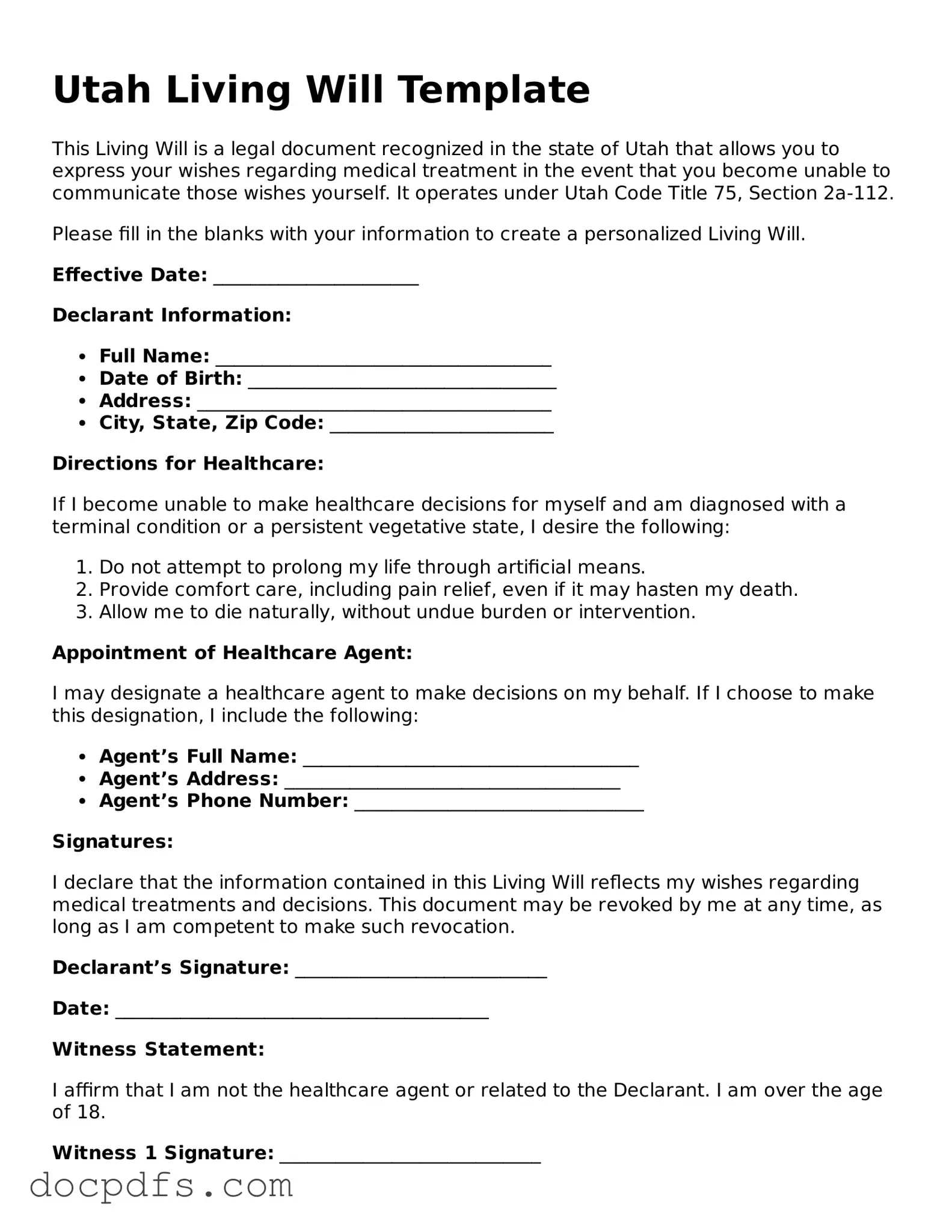Free Utah Living Will Form
A Utah Living Will form is a legal document that allows individuals to express their wishes regarding medical treatment in the event they become unable to communicate those wishes themselves. This form is essential for ensuring that healthcare providers and loved ones understand a person's preferences about life-sustaining measures. By completing a Living Will, individuals can take control of their healthcare decisions and provide peace of mind for themselves and their families.
Open Living Will Editor Now

Free Utah Living Will Form
Open Living Will Editor Now

Open Living Will Editor Now
or
⇓ Living Will
Finish this form the fast way
Complete Living Will online with a smooth editing experience.